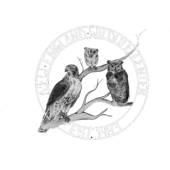The National Audubon Society’s first major accomplishment in protecting birds, was the Migratory Bird Treaty Act (MBTA) that was signed into law in 1918. For the past 100 years this act has saved millions, if not billions of birds. Still, most people don’t know what it is and what protection it provides. Or should I say, provided. In January of 2021, this act was rolled back by the then current government administration, and in the process, destroyed significant federal protection for migratory birds. To understand this impact, one must first understand what the MBTA provided for the last 100 years.
Primarily, the MBTA is a law enacted to protect birds from people. As we all know, human-wildlife interactions rarely end well for wildlife. The MBTA states “ that it is unlawful to pursue, hunt, take, capture, kill, possess, sell, purchase, barter, import, export, or transport any migratory bird or any part, nest, or egg or any such bird, unless authorized under a permit issued by the Secretary of the Interior. Some regulatory exceptions apply. Take is defined in regulations as :”pursue, hunt, shoot, wound, kill, trap, capture, or collect, or attempt to pursue, hunt, shoot, wound, kill, trap, capture, or collect.”
Since the first bill, the MBTA has included an international scope with treaties in Russia, Mexico and Japan and has protected additional species, adding eagles, and hawks among other birds, in 1962. Also, at that time it allowed Native American tribes to collect feathers from protected birds for religious ceremonies.
With this in place, there have been many success stories with species being saved from extinction. This treaty protects all native birds in the United States, 1093 species as of 2021.
Many birds die from direct and purposeful human involvement, for example, illegal hunting, but others die in what is called an “incidental take”. These are deaths that occur from problems birds face in the environment that were put there by humans. This includes oil pits, oil spills, communication towers, and high tension power lines. Birds die when they can’t see the power lines and run into them, or roost on them and become electrocuted when a transformer blows. They also can mistake uncovered oil waste pits for a pond and land in them, only to become trapped and unable to fly. Two weeks ago, Cape Wildlife Center received 25 birds that were burned and electrocuted while sitting on a power line. Their situation was critical and their outcome guarded.
Companies and conservation groups in the past have been addressing these issues, and have developed and implemented some ways to protect birds. When companies failed to use these and it has led to death, they were held accountable and penalized. The rolling back of the MBTA no longer holds companies accountable for incidental deaths.
What does this all mean?
First, the MBTA impacts everyone of us. We cannot pick up and keep those beautiful hawk feathers, or any feathers of a native species on our walks through the woods. We cannot move a nest because it is causing an inconvenience. We cannot shoot pellet guns at annoying crows who are in the garden. We can’t move a bird, nest or egg from one place to another. We can’t trap any birds for any reason. Primarily, it means hands off to the birds and anything that is associated with them. It means we cannot hand rear any baby birds, they must go to a licensed state wildlife rehabilitator who is also federally permitted. That being said, there are 8 species we see every day who are not federally protected, and the regulations do not apply (but it would be nice to afford them the same courtesy). These species are: Mute Swan, European Starling, Rock Dove, Ring Neck Pheasant, Ruffed Grouse, Turkey, House Sparrow, and Northern Bobwhite.
What can you do?
Be familiar with the MBTA and follow it’s regulations. Teach others about it. Many people unknowingly put these birds in harm’s way while breaking the law. You can also make your views known to law makers and conservationists to help change the treaty once again and make it stronger. You can financially support companies, and environmental groups that support the MBTA. You can keep your cat indoors. Outdoor cats account for millions of bird and small mammal deaths each year.
To learn more about the Cape Wildlife Center or help in their mission, visit www.capewildlifecenter.com or call 508 362-0111.
Caryn Ritchie is the volunteer coordinator for the Cape Wildlife Center and holds both a Massachusetts wildlife rehabilitator’s license and a federal permit to rehabilitate migratory birds.

Recent Comments